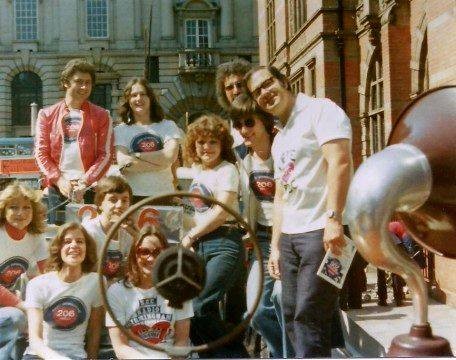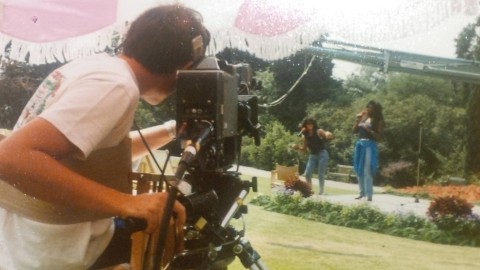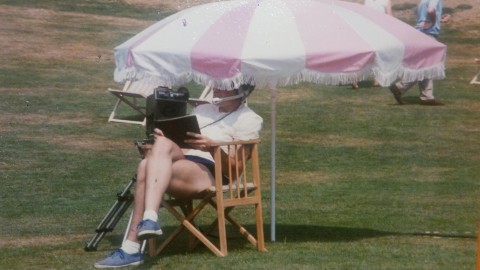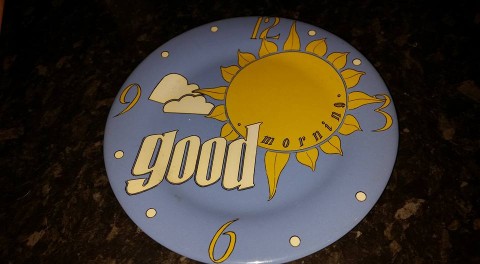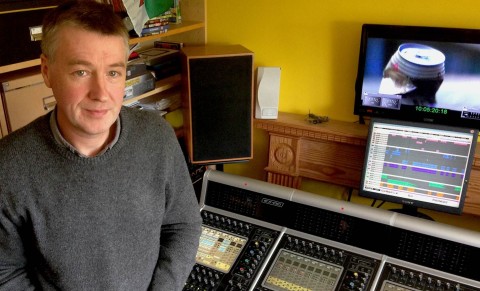The article below is taken from: http://www.desiblitz.com/content/5-bbc-asian-television-shows-to-remember
“The BBC is celebrating 50 years of its programming for South Asian immigrants which started in the 60s and for the subsequent new British Asian generations into the 80s, 90s and onwards.
Programming for Asian immigrants who arrived in Britain started at 9.00am on 10th October 1965 on BBC1.
In Logon Se Miliye was the first programme which was then replaced by Apna hi Ghar Samajhiye known as Make Yourself at Home in 1966.
The programme produced by David Gretton was also repeated on BBC2 and on BBC radio.
Offering a mix of language lessons in everyday English and popular music from Indian and Pakistani films, the programme aimed to help Asians cope with everyday life.
Subsequently, shows like Nai Zindagi Naya Jeevan and Gharbar for women, appeared on BBC television.
Both radio and television progressively began to broadcast shows targeting Asians living and now settled in Britain.
BBC Radio shows like East and West, Midlands Masala and the emergence of BBC Asian Network as a station, all contributed to this programming.
It was the late 80s and 90s when BBC programming for Asians took a new direction, to appeal to new generations of British Asians.
The television programmes were produced by the BBC Asian Programmes Unit (APU), based at Pebble Mill in Birmingham.
The APU was headed by Narendhra Morar and subsequently taken over by Paresh Solanki during this era of BBC’s multicultural programming.
Other members of the team included Narinder Minhas, Tommy Nagra, Fatima Salaria, Farah Durrani, Sangita Manandhar, Gurdip Bhangoo, Jane Dunning and Sara Kozak.
We remember five popular shows from this special era of BBC Asian television.
NETWORK EAST

(Copyright resides with the original holder, no reproduction without permission)
This weekly lifestyle and entertainment programme was launched in 1987 on BBC2 on Saturday mornings.
It was the first programme to be fully broadcast in English.
This lively show had a series of well-known presenters through its time, including, Valerie Vaz and Samantha Meah, Krishnan Guru-Murthy, Mo Dutta, Shahnaz Pakravan, Sudha Kumari (now known as Sudha Bhuchar), Sanjeev Kohli and Sonia Deol.
It featured lots of major stars and acts including Amitabh Bachchan, Mehmood, Salman Khan, Ustad Nusrat Fateh Ali Khan, Gurdas Maan and Shobu Kapoor (Geeta in EastEnders).
With Bhangra bands being huge at the time, Azaad, Alaap, Heera, Apna Sangeet and many more were featured on the show.
The Network East Mega Mela event was the first major indoor mela held at the NEC in Birmingham.
The show featured and supported live acts and upcoming bands.
In 1998, Asia 2 was used to group Asian programmes shown on BBC 2 on Saturday mornings, starting with Network East: Big Talk, a show discussing Asian issues.
A late night version of the show called Network East Late was aired in 2001.
EAST

(Copyright resides with the original holder, no reproduction without permission)
This was a programme produced to address current affairs and controversial issues affecting the South Asian communities in Britain.
Aired weekly from 1990, on BBC2 on Tuesday evenings, it tackled many areas of Asian life in its episodes. Including:
The increasing number of young Asians choosing mainstream pop over the traditional Asian music market after success of Babylon Zoo.
Growing numbers of elderly Asian parents who expected to be cared for by their children are finding themselves alone or in homes.
Increasing numbers of Asian women in Britain becoming involved in prostitution, after running away from sheltered and unhappy homes
EAST – tackled issue of prostitution
Some episodes of the series instigated complaints for their hard-hitting nature.
CAFE 21
The newer generations of British Asians had many social and personal issues to deal with during the 90s.
Cafe 21 was targeted at this youth and debated topics and matters concerning them.
The setting was usually a ‘student common room’ with an audience of young guests who debated topical issues with the presenter Rajesh Mirchandani.
Participants frequently discussed education, careers, religion, racism, relationships, politics, multiculturalism, integration and lots more.
It was aired on Saturday mornings on BBC2 from 1997.
BOLLYWOOD OR BUST

(Copyright resides with the original holder, no reproduction without permission)
This programme was shown on BBC2 on a Saturday morning from 1994 and was an amazing concept of a gameshow using Bollywood as its theme.
Presenters of the show were first Mo Dutta and then Sanjeev Bhaskar.
Four contestants were invited into the studios to take part in a series of question and Bollywood trivia rounds.
Each round was introduced with a dramatic piece of Bollywood film music and each round was named in Hindi and English.
Each episode progressively led to a semi-final and then a final.
The winning prize was a fully paid trip to Bollywood itself and a chance to meet some of the biggest stars at that time, including, Shahrukh Khan, Saif Ali Khan, Dev Anand and many more.
FLAVOURS OF INDIA
At the time this was one of the first cookery television shows of its kind. It used the concept of on location cooking with the hugely popular, Madhur Jaffrey, as the cookery star, travelling across India.
The six-part series was directed by Navin Thapar and produced by Sara Kozak and a team from the BBC and India. It was aired from 1995.
Different cuisines were brought to you in each episode featuring a specific state of India and its speciality dishes. Including, Goa, Kerala, Gujarat, Punjab and Tamil Nadu.
Madhur narrated her visits and provided historical facts about each place and made the dishes outside on location.
A book was published to accompany the series.
Most of the above shows were aired on Saturday mornings on BBC 2, which was dominated by BBC Asian programmes – a history in the making, in its own unique way.
Although Asian programmes today are still part of the BBC agenda, the Asian Programmes Unit was closed in 2008. So, it’s unlikely that we shall ever witness another era of domination by shows like the ones we remember here.’
The following comments were left on the Pebble Mill Facebook page:
Tony Jover: ‘I recall we used to do a Top 10 Bollywood movies section, a fashion section and more. At one stage it was presented by Sanjeev Bhaskar. I used to edit Network East with Paresh Solanki.’
Viv Ellis: ‘I worked on the very first Network East under Narendhra Morar, as a director, doing studio and location shoots and editing. We recorded the show in the small studio (can’t remember what it was called) [Studio B] with a “band days” in studio A. We had all sorts of amazing music.’
Gordon Astley: ‘I remember my first TV job was boom op. at Gosta Green about 1970. I remember trying to get as near to a sitar as possible. Must have been one of the first of these shows?’
Bridget Catherine Vaughan: ‘I worked in the days of Ashok Rampal.’
